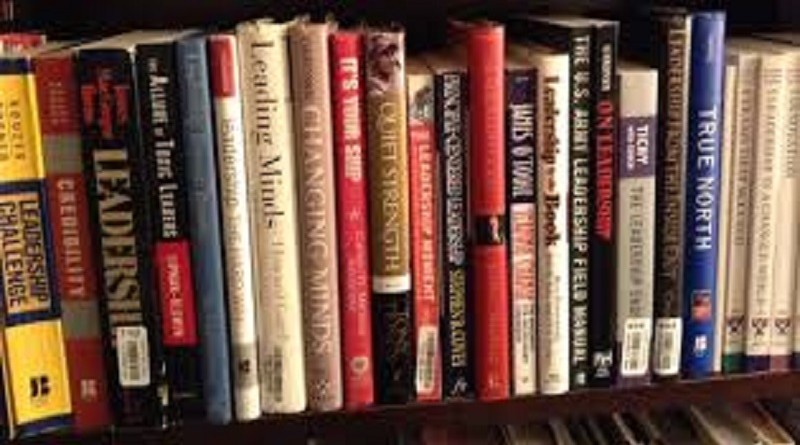This Year’s 11 Must-Read Books for Entrepreneurs By Leigh Buchana, Editor Inc Magazine
Business writers in 2019 remain fixated on technology–who developed it, how it is changing us, and why we should a) bring it to heel or b) stop worrying and love it. There seemed to be fewer titles by big-name executives than in previous years, with Bob Iger of Disney, Marc Benioff of Salesforce, and John Browne of BP among the exceptions. The number of titles explicitly targeting entrepreneurs also appeared to shrink, although a few more general strategy books–for example Thales S. Teixeira’s intriguing take on disruption, described below–are great blueprints for legacy business takedowns.
Here are Inc.’s picks for the year’s 11 best business books for entrepreneurs.
1. Biased: Uncovering the Hidden Prejudice That Shapes What We See, Think, and Do
by Jennifer Eberhardt
Eberhardt,
a MacArthur-winning social psychologist, examines how racial bias–more
damaging for going unrecognized–thrums like bad blood in communities,
schools, and, most starkly, in law-enforcement agencies and the courts. Biasedtouches
everyone, and business isn’t top-of-mind for the author. But CEOs, who
have a mandate to root out bias from their organizations, will learn
from the experiences of companies like Nextdoor, a community platform
coping with unfair targeting of minorities for neighborhood crimes; and
Airbnb, which has struggled to prevent hosts from rejecting guests
because of their skin color. Bias training is fine, as far as it goes.
But Eberhardt warns companies that training creates the risk of growing
complacent and ignoring the harder challenges, like changing culture and
policies. (So watch yourself, Starbucks.)
2. Brave New Work: Are You Ready to Reinvent Your Organization?
by Aaron Dignan
The
No. 1 reason people start businesses is because they have an idea. Not
far behind is dissatisfaction with their current jobs. They want to take
everything their current employer does and–in their own companies–do
the opposite. Dignan, founder of The Ready, an organization-design firm,
shows the way in Brave New Work.
Dignan explains how centralized, process-focused, supremely cautious
companies prevent people from doing their best work. His approach to
remaking an organization–cleverly laid out as an operating system–can
also be used to develop a new one. It comprises everything from cool
approaches to budgeting (zero-based, participatory) to meetings (die,
status updates, die!) to compensation (what if you let employees
determine their own pay?). Dignan has studied some of the most
intriguing workplace practices out there and introduces fresh thinking
to old problems.
3. How We Make Stuff Now: Turn Ideas Into Products That Build Successful Businesses
by Jules Pieri
For
anyone with an idea for a product but no clue how to design, build,
package, or market it–let alone how to finance the thing or prevent
someone from stealing it–How We Make Stuff Now
walks you clearly and methodically through the process. Pieri,
co-founder and CEO of The Grommet, a website that helps makers launch
cool products, has advised scores of entrepreneurs and is a master of
both the broad strokes and the details: everything from how to think
about Amazon to why UPC codes matter. The case studies–like that of
Bonnie Tyler, the 76-year-old inventor of the Negg egg peeler–are
refreshingly accessible.
4. Loonshots: How to Nurture the Crazy Ideas That Win Wars, Cure Diseases, and Transform Industries
by Safi Bahcall
Every entrepreneur who someone once called bonkers–which is to say every entrepreneur–will thrill to this definition of “loonshots“:
game-changing innovations that started as “widely dismissed ideas whose
champions are often written off as crazy.” Bahcall, a physicist,
applies science to the question of how those fragile products of genius
and serendipity survive repeated rejection (the “Three Deaths”) and are
ultimately translated into triumphs like radar or statins or instant
photography. The message for leaders: Protect your inventors and
carefully manage the transition of inventions to the field.
5. Nine Lies About Work: A Freethinking Leader’s Guide to the Real World
by Marcus Buckingham and Ashley Goodall
Among this year’s best books about leadership is one that argues that leadership isn’t a thing. In Nine Lies About Work,
performance guru Buckingham and Cisco executive Goodall remind us that
people’s abilities, motivations, and perceptions vary wildly. So
managing them all in the same way, which companies do to reduce
complexity, doesn’t really work. How can you give feedback if everyone
aspires to her own definition of excellence? How can you espouse a
common culture when everyone’s experience of work is different? As for
leadership, it can’t be defined or measured, and no one possesses all
the characteristics that are supposedly required. The question isn’t how
to lead, the authors write; rather, it is how to attract followers.
6. Range: Why Generalists Triumph in a Specialized World
by David Epstein
If
you haven’t completed those 10,000 hours of deliberate practice
intended to make you master of whatever, stop now. Go learn to throw a
pot or play the zither or program with Python instead. Epstein, a
journalist, attacks the wisdom of specializing early and intensely with a
wealth of research and anecdotes. One satisfying story he offers in Range,
for example, is that of Gunpei Yokoi, whose lack of genius at
cutting-edge electronics relegated him to a job at a backwater playing
card company, where he parlayed his dalliance with random older
technologies to create modern-day Nintendo. For open-ended problems–in
which the business world abounds–narrow expertise often fails to cut
it, Epstein explains.
7. Rockonomics: A Backstage Tour of What the Music Industry Can Teach Us About Economics and Life
by Alan B. Krueger
Music
is an iceberg-tip industry for disruption: of production methods,
delivery channels, compensation strategies, consumer engagement, and
intellectual property law. In Rockonomics,
Krueger, a professor and former chairman of the Council of Economic
Advisors, limns the industry’s changes and shifting power dynamics
wrought by digitization and other forces and explains their lessons for
the broader economy. Most fun are the portraits of musicians as their
own financial agents: Tom Petty and the Heartbreakers embarking on “The
Lawsuit Tour” after a dispute with their label; the rapper Lil Pump
slipping out of an underwhelming first contract through a legal
loophole. As Sheryl Crow says, “It’s all about supply and demand.”
8. Unlocking the Customer Value Chain: How Decoupling Drives Consumer Disruption
by Thales S. Teixeira
Harvard
Business School professor Teixeira spent eight years visiting large
tech companies like Google and Facebook, hot startups like Birchbox and
Houzz, and incumbents like Walmart and Warner. His conclusion: Startups
disrupt not with innovation or new technology but by separating
customers from their familiar approaches to buying. They do this by
grabbing one piece of the process for themselves. So: By choosing
customers’ beauty products Birchbox made it unnecessary for them to
sample those products in Sephora stores. Turo–a peer-to-peer
car-sharing company–decoupled the use of automobiles from their
purchase or even rental. Marketers best understand a company’s value to
consumers, Teixeira writes in Unlocking the Customer Value Chain. Consequently, the most successful startup founders are the best marketers.
9. The Vagabonds: The Story of Henry Ford and Thomas Edison’s Ten-Year Road Trip
by Jeff Guinn
Tales
of Silicon Valley’s bro elite are weak tea beside the escapades of the
early 20th-century’s most dazzling businessmen. For years, Ford and
Edison–accompanied by tire magnate Harvey Firestone and naturalist John
Burroughs–embarked on semi-regular sort-of-camping trips cheered on by
adoring crowds and breathlessly reported by a carefully primed press.
These heat-seeking innovators–Ford’s star was rising while Edison’s
declined–presaged the kind of celebrity culture now permeating business
and politics. In The Vagabonds, Guinn,
a journalist, describes an America in dizzying transition thanks to the
automobile and other inventions made ubiquitous by these fascinating,
flawed men.
10. Everyday Chaos: Technology, Complexity, and How We’re Thriving in a New World of Possibility
by David Weinberger
Weinberger,
for decades one of the most prescient and philosophical thinkers about
the internet, here tackles the broader subject of how technology
influences the way we understand and function in the world. Moving back
and forth between ancient history and 10 minutes from now, Everyday Chaos
explains that fixed-future ideas like progress and preparation are
insufficient in the face of multiplying layers of complexity. Yet as our
decision-making is overtaken by machines, it becomes possible to
operate without our own hypotheses about what will work. Weinberger
advocates for operating in a state of “unanticipation” in which we leave
options open (think minimal viable products, agile development, and
black swans). In this way of looking at the world, traditional strategy
can be dangerous. Obscurity is your friend.
11. What You Do Is Who You Are: How To Create Your Business Culture
by Ben Horowitz
Culture, like life, is what happens while you’re busy making other plans. And if you don’t shape that culture with intent, it may develop in ways you don’t like. Famed investor Horowitz finds exemplars of culture-building in unexpected places–a slave rebellion in Haiti, a maximum security prison in Michigan–as well as in his own tech and VC ventures. He demonstrates in What You Do how leaders can use crises as opportunities for big, brave gestures that make an indelible statement about what they and their organizations stand for. And while employees will understandably question rules that seem extreme–for example, charging people when they are late for meetings–those questions are an invitation to tell the story behind the rule, which they’ll never forget.

By Leigh Buchanan, Editor-at-large, Inc. magazine @LeighEBuchanan




